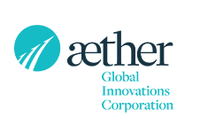Facebook Obtains User Data, Apple Reveals New Privacy Measures
The data of 187,000 Facebook users was compromised on Wednesday. Apple is offering alternative privacy solutions.
In another series of data and privacy violations, on Wednesday (June 12) news surfaced that Facebook (NASDAQ:FB) has collected sensitive data from 187,000 of its users via an app.
The app, called Project Atlas, was a research app that collected encrypted messages, mobile activity and internet browsing activity from Facebook accounts. TechCrunch reported that the app also could have tracked users’ friends’ data, although it is now defunct.
“We have deleted all user-level market insights data that was collected from the Facebook Research app, which would include any health or financial data that may have existed,” a Facebook spokesperson said.
Apple (NASDAQ:AAPL) banned the app in January by taking away Facebook’s enterprise developer certificate. Apps that collect the type of data that Project Atlas was gathering go against Apple’s privacy guidelines, but Facebook had been getting around those rules by using Apple’s Developer Enterprise Program. This program is intended to allow companies to test apps with their own employees.
Facebook has since relaunched the app, entitled Study, this week. The company will now offer to pay users for their data.
Meanwhile, in the days leading up to Facebook’s data breach, Apple announced on June 3 that it will be introducing its privacy-focused single sign on service, similar to the services offered by Facebook and Google (NASDAQ:GOOG). Facebook and Google’s services allow users to sign into a site with their existing Facebook or Google login details.
Apple has set itself apart in that it will not sell users’ email information or personal data to third party sites. When users sign into third party sites using Facebook or Google’s sign on features, sites collect data from those profiles.
Apple, however, has designed a sign in system that generates a fake email address. This prevents third party sites from having access to a user’s email address, information that can allow the site to track users’ web activity and preferences. Essentially, Apple gives third parties limited user information.
Tom Thomas, adjunct faculty member in Tulane University’s Online Master of Professional Studies in Cybersecurity Management, told the Investing News Network, “Apple’s really positioning itself as a privacy company. They’re trying to use that as a differentiator driving customers to their ecosystem.”
During a time when Facebook is setting aside billions of dollars for paying fines to the Federal Trade Commission, Apple is portraying itself as a privacy-centered company.
Despite the rise in privacy investigations, the US is far behind its international counterparts.
“What we find interesting with the industry is when it comes to privacy laws, the US is perhaps one of the most liberal countries in that regard,” Thomas explained.
Tim Cook, CEO of Apple, endorsed that Europe’s General Data Protection Regulation privacy regulation be extended to a US federal equivalent.
“We have to admit that there’s something we’re doing isn’t working and that the technology needs to be regulated,” Cook said at a Time Magazine conference in April.
Shares of Facebook opened on Wednesday at US$175.50 and stood at US$177.44 as of Thursday’s (June 13) market close.
Apple shares opened at US$175.60 on Monday (June 13) and had climbed to US$194.15 as of market close Thursday, a 12 percent increase.
Don’t forget to follow us @INN_Technology for real-time news updates!
Securities Disclosure: I, Dorothy Neufeld, hold no direct investment interest in any company mentioned in this article.
Editorial Disclosure: The Investing News Network does not guarantee the accuracy or thoroughness of the information reported in the interviews it conducts. The opinions expressed in these interviews do not reflect the opinions of the Investing News Network and do not constitute investment advice. All readers are encouraged to perform their own due diligence.

